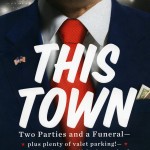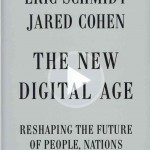As a recent transplant to Washington, D.C., I seemed well-placed to review This Town. My hope was that Mark Leibovich, a veteran political journalist with the New York Times and previously the Washington Post, was going rogue and painting a vivid and gruesome picture of how America’s capital really works. The book would be a call to arms and show how D.C. is sick and needs fixing. But This Town is not a book that shows how D.C. really... Read more
















